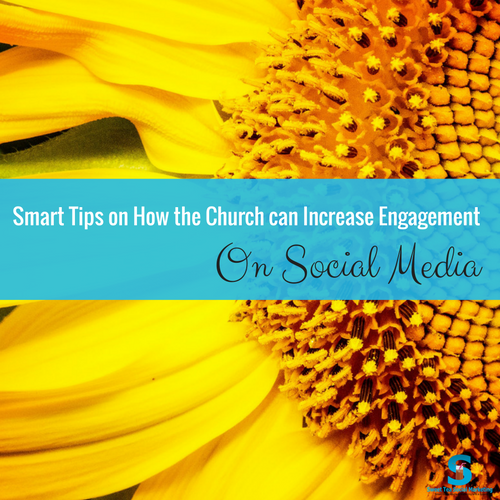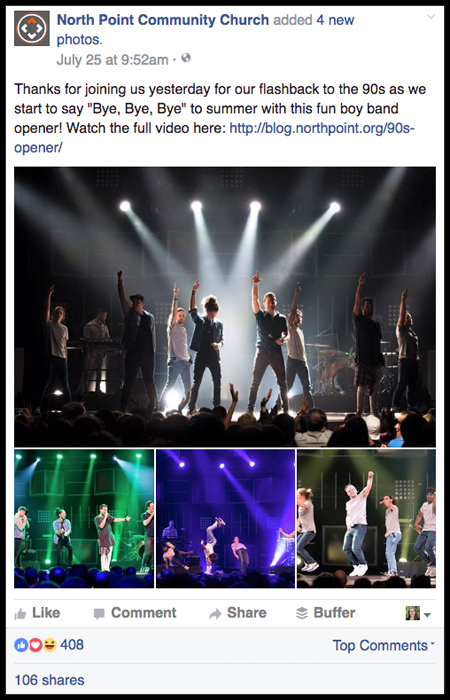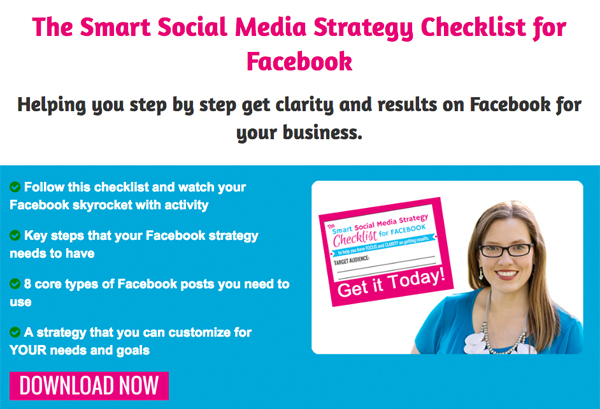I am excited. Why? Because today's blog post is focused on smart tips on how the church can increase engagement on social media.
Can churches be successful with social media? Absolutely.
Today we're going to cover what churches should definitely be doing to maximize social media engagement for their growth and impact in their community.
(The video towards the bottom is the inspiration for this blog post if you prefer to listen and hear the content).

No matter where you are in the world, I would love to let you know that I'm coming to you today from a place of love and genuineness as I love helping churches, Chamber of Commerces, and locally-based businesses really wanting to get plugged into the community and use social media to help you grow, to help you leverage your business.
Smart Tips on How the Church can Increase Engagement on Social Media
1 . Let Current Church Members Know You are on Social Media.
The very first thing I want to share with you is that you have got to go and tell your current church members that you're on social media. Okay, it needs to be more than just being on the very bottom of a church bulletin each Sunday. You've got to keep in mind we as a society are changing the way that we think, and we're changing the way that we communicate, and you can either be a part of that changing conversation or you can choose not to be. If you've taken the leap with your church to be on social media then you want to definitely be strategic to make sure that you are effective in communicating to your current congregation. These people already ‘like, know, and trust' you. Pastors can include it regularly in his messaging, it can be on the big screen as people are coming into their seats and flyers can even be up around the church on various bulletin boards. By being proactive and inviting your congregation to engage with you on social media, you'll have a crew of raving fans ready to consume and share your great content.
Note: This means you have to be delivering great content. More on that in a moment.
2. Use a Custom Hashtag
Use a hashtag that you use specifically for your church within your posts on social media. The main reason I suggest this is because it will allow you to have a searchable way to track conversations and do some social listening where your church is being brought into the conversation. As an example, go to Twitter and in the top search field type in the hashtag that you're thinking of using.
If your church happened to be called St. Augustine Baptist Church, maybe you don't necessarily want to type that all out. The longer a hashtag is, the harder for people to remember.
If it was St. Augustine Baptist Church [totally made that up] you could do #StAugBap, for example. If you see that hashtag is being used by many not in relation to your church, continue to keep exploring until you find one that is easy to remember and not used by others outside of your audience.
When you encourage your current congregation to use your hashtag on social media,you are promoting engagement.
Engagement is a very good thing on social media.
3. Promote Others Doing Great Things In the Community
We're going to spotlight other people in your community, whether it's another church, whether it's another business, whether it's an event taking place that attracts a similar demographic that you may be trying to reach and attract on social media. Your brand should be interacting and being social, not just on your social media platforms, but on other pages too. If questions are being asked and you have some insight, go in and really add some value to the conversation. This not only helps your brand recognition but shows you realize that being a part of a community means lifting others up as well.
People are paying attention to conversations taking place on social media and you have the opportunity to add your church to the conversation. This will increase the chances of people to see your church name, and click on your page to come and see what you are all about.
The next thing you know they click on you, they come over and they're on your feed. Based on what they're seeing and if they feel like they resonate with you, they may actually come and follow your church and interact with you. When you make social listening a regular part of your social media strategy, it can increase your reach into the community.
If there's a local kids' consignment sale going on that's attracting tons of people with young families, and you have a demographic at your church of really wanting to get out into the community, go and interact on that page. Again, good social strategy is actually asking questions, wanting to engage with people, so when you find other businesses, other churches, other brands that are local in your area that are having those kinds of questions, having conversations, when you and your church as that business, or as your church, when you go out and have those conversations and you are commenting on other pages you are expanding the footprint, the social footprint for your church, okay.
4. Have a Solid Content Strategy
That may sound really deep.
It may seem like it's confusing, or maybe you don't know what I mean when I say content strategy. When the solid content strategy is put into place, it lays a great foundation for the church to increase engagement on social media.
The information that you share and the types of things that you're posting on social media should have a correlation with the type of things that someone could maybe find on your church website.
What is your content strategy? Are you, for example having blog content on your website that gets updated weekly or monthly? Well, then if that is the case, you want to create individual postings on social media to link back to your website, because what you're trying to do is use social media to help you grow and nurture new connections and new relationships with people in your community.
You want people to have a reason to want to come and check out your church to see what it's like in person. Before they do that, they are most likely going to go to your website, see if they get a vibe of the types of things you post about, the services and the programs that you offer, the time of your church, how you can get there, etc…
Here's a Challenge – Go and audit your own church on social media.
- Go to your website. Make sure that you can within 90 seconds easily find specific directions on how to get to the church.
- If someone wanted to email or call your church can they find the number easily?
You want to make sure that the people that you're trying to reach are feeling a connection with the information that you're putting out on social media.
If your church is trying to reach young moms, or young single moms, are you putting content on social media that demonstrates that you have a heart of service for single moms?
Are you addressing some of their pain points?
What's it like to walk in their shoes, to be completely responsible for the finances of their family, for trying to handle the childcare, to get all of those true physical needs met? You can have content, blog information on your website that just addresses how your church can come alongside that single mom and be a support to her. You need to have that information on your Facebook page, or Instagram, your Twitter, wherever it is that you are being on social media. You need to make that clear so people feel drawn to want to connect more with your business.
5. Post Inspirational and Relatable Visual Content and Video
You want to inspire people in your social media feeds.
Here's what I mean.
Your church wants to spread the message of Jesus. You love people, and you want people to be able to come to your newsfeed, and you want them to feel inspiration.
To do this, use Bible verses, use a quote from your pastor or other Christian influencers and leaders. You want to have words of encouragement that could inspire someone right on your social media platforms. Often this type of content is easily able to be shared because people often share content that emotionally triggers something in them. According to some research, content that goes viral is shared immediately because it leads people to share because it made them feel warmth, happiness and surprise.
What we all know to be true in trying to expand the kingdom of Jesus is to know that it's not just talking about these Bible verses and being “churchy” on Sunday. It's really about being real, being authentic, meeting people where they are, having a solid firm foundation in what you believe, and using those words of encouragement that you can bring to social media to use to inspire, to encourage other people.
Also, when you show up on social media that you can have fun, and enjoy upbeat music, poke fun and trending music of days gone by, people can relate. Here's a perfect example from Northpoint Community Church near Atlanta, GA.

Conclusion
Engagement on social media absolutely matters if churches want social media to help them build a bridge to the community and really be a foundation to relationship building. It not only can be a first impression (that can easily be the last) but it can also be the very beginning to seeds being planted as people look for ways to get involved or connected with a local church.
The question I have for you is do you want them feeling that your social media is welcoming and inviting or sending them running for the hills? I'm certain your answer isn't the later.
Is your church using social media to grow within your community? If so, which social media platform are you currently getting the most engagement from? Or, what did you get out of this blog post that could help your church or organization on social media? Tell me in the comments below.
Want to watch the Facebook Live that was the inspiration for this blog post? Well, here you go. It's 16 minutes long. Enjoy!
Need more results with Facebook?
DOWNLOAD NOW our Smart Social Media CHECKLIST for Facebook.
We're here to help you step by step get clarity and results on Facebook for your business.



Hi Heather,
Great tips! I liked what you said is that you have to make it known to your congregation that the church is on social media and you should invite them to engage there. We recommend to churches that they do the same thing with their website. It’s not something you put up just so you can say you’re online. You want people to USE the site, but to do that, they need to be aware it’s there and what kind of information they will find there.
We suggest that pastors mention it from the pulpit every so often so that the congregation gets used to accessing it as a resource where they can find current info on events, listen to the recent sermons, etc.